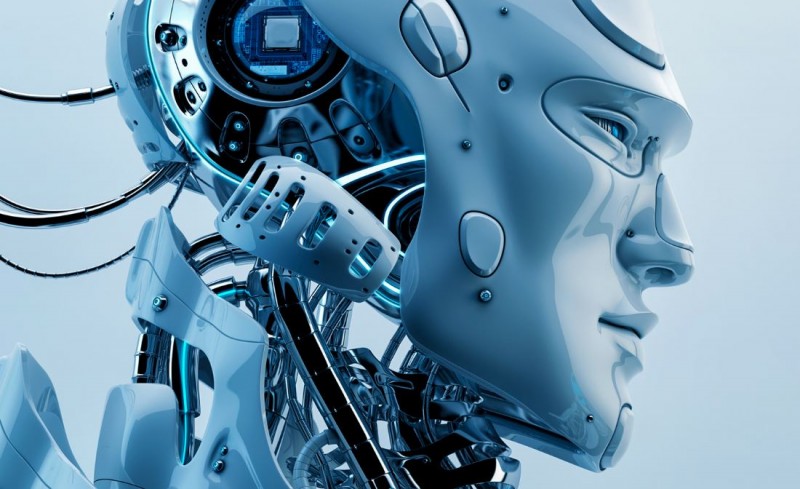
Definition of Artificial Intelligence
Artificial Intelligence refers to the development of computer systems capable of performing tasks that typically require human intelligence. These tasks include learning, reasoning, problem-solving, perception, and decision-making. AI can be classified into two categories: narrow AI, which focuses on specific tasks, and general AI, which aims to replicate human-like intelligence across various domains.
Historical Overview of Artificial Intelligence
The concept of AI has been around for decades. The roots of AI can be traced back to the Dartmouth Conference in 1956, where the term was first coined. Over the years, AI has witnessed significant breakthroughs, such as the development of expert systems, machine learning algorithms, and neural networks. These advancements have paved the way for the current state of AI and its future possibilities.
Current State of Artificial Intelligence
The current state of AI is characterized by remarkable advancements and widespread adoption. Machine learning algorithms, powered by vast amounts of data, enable AI systems to learn and improve their performance over time. AI applications are being utilized in various domains, including healthcare, finance, manufacturing, transportation, and customer service. Virtual assistants like Siri, Alexa, and Google Assistant have become household names, enhancing our daily lives with their voice recognition and natural language processing capabilities.
Applications of Artificial Intelligence
The applications of AI are vast and diverse. In healthcare, AI is being used for disease diagnosis, drug discovery, and personalized treatment plans. In the financial sector, AI-powered algorithms analyze large datasets to detect fraud, predict market trends, and optimize investments. Industries like manufacturing benefit from AI-driven automation, improving efficiency, and reducing costs. AI is also transforming transportation with the development of autonomous vehicles, making transportation safer and more efficient.
Advancements in Artificial Intelligence
The future of AI holds exciting advancements that will shape our world in unprecedented ways. Breakthroughs in deep learning, reinforcement learning, and quantum computing are expected to propel AI to new heights. Natural language processing will enable more seamless human-machine interactions, making communication with AI systems more intuitive. Robotics and automation will continue to advance, leading to the integration of AI into physical systems and enhancing productivity across industries.
Challenges and Ethical Considerations
As AI evolves, it brings forth challenges and ethical considerations. One of the primary concerns is the potential displacement of jobs due to automation. It is crucial to address the socioeconomic impact of AI and ensure a smooth transition for the workforce. Additionally, ethical considerations surrounding data privacy, algorithmic bias, and the accountability of AI systems need to be carefully addressed to build trust and ensure fairness.
The Future of Artificial Intelligence
The future of artificial intelligence is filled with immense possibilities. AI systems will become more intelligent, capable of reasoning, and learning from limited data. General AI, with human-like cognitive abilities, remains a long-term goal. The integration of AI with other emerging technologies, such as the Internet of Things (IoT) and augmented reality (AR), will create a connected and intelligent ecosystem.
Impact on Industries and Society
AI will have a profound impact on industries and society as a whole. It will transform how we work, enabling automation of repetitive tasks and freeing up human potential for more creative and strategic endeavors. Healthcare will witness improved diagnosis, personalized treatment plans, and precision medicine. Transportation will become safer and more efficient with autonomous vehicles. AI-powered algorithms will optimize energy consumption, reduce waste, and contribute to sustainable development.
Opportunities and Potential Risks
The future of AI presents numerous opportunities. AI-driven innovations will lead to the development of new industries, job roles, and economic growth. The potential for breakthroughs in scientific research, healthcare, and climate change mitigation is immense. However, it is crucial to address potential risks, including the misuse of AI technology, algorithmic biases, and the concentration of power. Responsible development, regulation, and governance are essential to harness the benefits of AI while minimizing its risks.
Regulation and Governance
As AI technology continues to evolve, regulation and governance frameworks become crucial to ensure responsible and ethical AI development and deployment. Collaborative efforts between governments, academia, industry experts, and society are necessary to establish guidelines, standards, and policies. These frameworks should address privacy, data protection, transparency, and accountability, promoting the responsible and fair use of AI technology.
Conclusion
The future of artificial intelligence holds tremendous potential to reshape our world across industries and society. As AI technologies continue to advance, it is essential to focus on responsible development, addressing challenges, and maximizing the benefits while minimizing risks. By harnessing the power of AI, we can create a future that is smarter, more efficient, and sustainable.
FAQs
FAQ 1: How will AI impact job markets in the future?
AI will lead to job market transformations, with certain tasks becoming automated. However, new job roles will emerge, focusing on managing and enhancing AI systems, as well as creative and strategic endeavors that require human skills.
FAQ 2: What are the ethical concerns surrounding AI?
Ethical concerns include data privacy, algorithmic biases, and the accountability of AI systems. It is important to address these issues to ensure fair and responsible AI development and deployment.
FAQ 3: Will AI replace humans in various industries?
AI will automate certain tasks, but its primary goal is to augment human capabilities and improve efficiency. Humans will continue to play a vital role in decision-making, creativity, and complex problem-solving.
FAQ 4: How can AI contribute to sustainable development?
AI can optimize energy consumption, reduce waste, and enhance resource management. It can also aid in scientific research for climate change mitigation and provide insights for sustainable policies and practices.
FAQ 5: How can AI be regulated and governed effectively?
Effective regulation and governance of AI require collaboration between governments, experts, and stakeholders. Guidelines and policies should address data protection, transparency, accountability, and responsible AI development and deployment.
Does AI is really Dangerous for Humans?
Twitter will give creators a portion of ad revenue: How it works
The desktop version of Microsoft's Bing Chat now accepts voice input